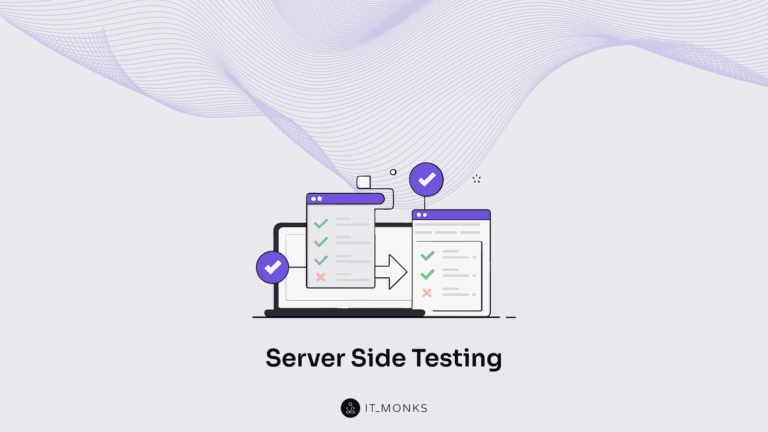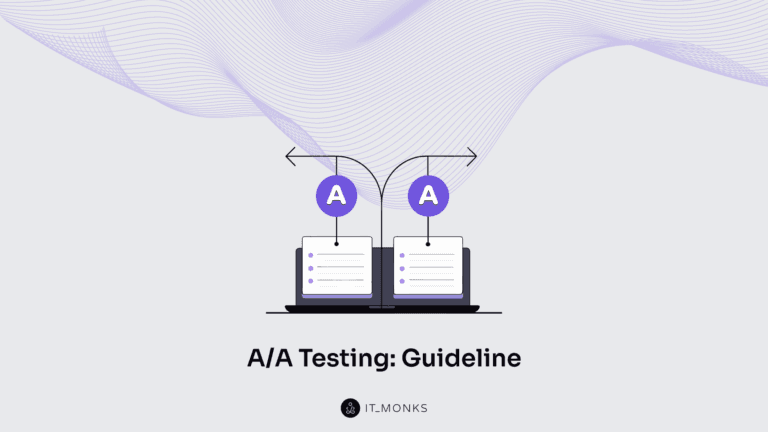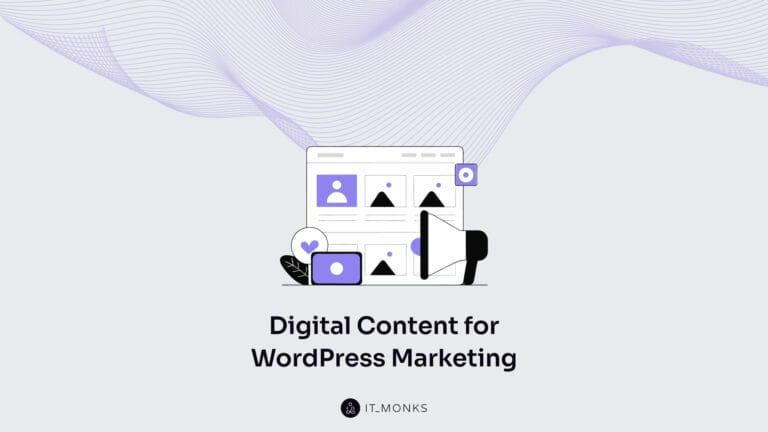Types of Ecommerce Websites Explained with Examples
Table of Contents

The demand for ecommerce is booming, with analysts anticipating retail ecommerce to reach $4.13 trillion this year. Online shopping delivers many benefits to buyers and sellers alike. For customers, buying on an ecommerce website offers the exceptional convenience of browsing their favorite products and buying the deals with a few clicks. For retailers, ecommerce makes their businesses accessible 24/7, letting them monetize their businesses and engage the audience simultaneously. Today, you can come across various types of ecommerce companies selling online. Do you plan to build an ecommerce website as well? Before you proceed, it is vital to understand the difference between major types of ecommerce business models and types of ecommerce websites adopting those business models. Let’s explore different categories and examples of ecommerce businesses.
Ecommerce Business Model vs Website Type
Before we delve into the specific ecommerce business models and website types, it’s important to clarify the distinction between a business model and a website type.
- Ecommerce Business Model refers to a company’s strategy to sell products or services online. It defines how the business operates and makes money, including the type of customers it targets and the method of transactions.
- Ecommerce Website Type describes the structure and functionality of an ecommerce website. This includes the products’ presentation, the user experience, and the site’s overall design and layout.
Ecommerce Business Models
Before you start your ecommerce business, you need to understand the specifications of various ecommerce models and differentiate between them. Different kinds of ecommerce models cater to distinct market needs and transaction types, shaping how goods and services are bought and sold online. Typically, ecommerce business models fall into the following five categories.
B2B (Business to Business)
The B2B model involves transactions between businesses. Companies sell products or services to other businesses, often in large quantities or through long-term contracts. This model is prevalent in industries where businesses must procure goods for production or resale.
Characteristics:
- Typically involves bulk transactions;
- Longer sales cycles and more complex negotiations;
- Emphasis on building long-term relationships.
Alibaba is an example of ecommerce websites using the B2B business model. This global B2B platform lets businesses purchase products in bulk from suppliers worldwide.

B2C (Business to Consumer)
In the B2C model, businesses sell products or services directly to consumers. This is the most common ecommerce model, focusing on convenience, speed, and user experience to attract and retain customers.
Characteristics:
- Direct sales to consumers;
- Shorter sales cycles;
- Heavy focus on marketing and customer service.
Think of Amazon as an example of ecommerce websites using the B2C business model. The world’s largest online retailer offers a vast range of products directly to consumers.
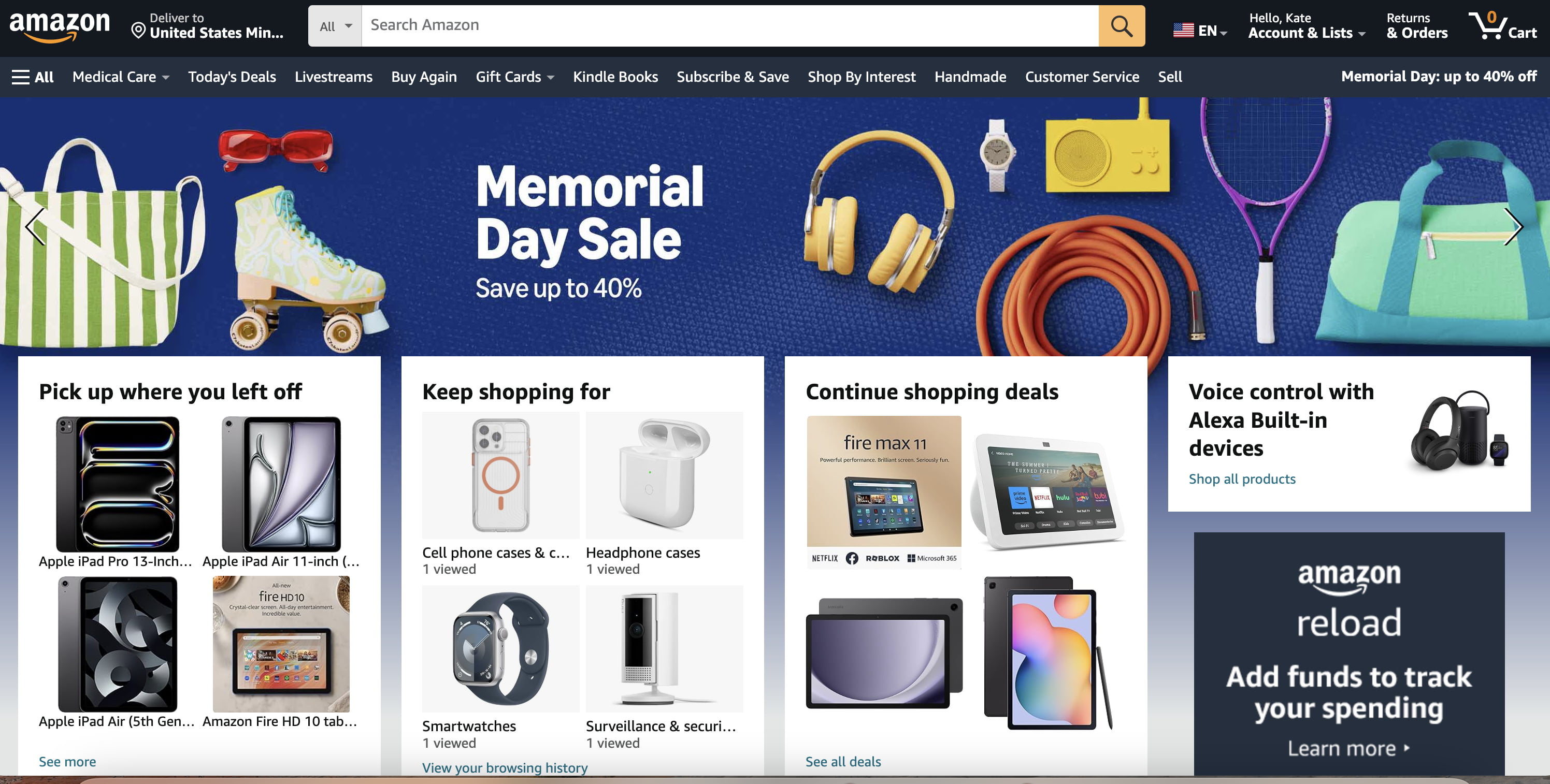
B2G (Business to Government)
B2G ecommerce involves businesses providing products or services to government agencies. This model often includes a formal bidding process and requires government regulations and standards compliance.
Characteristics:
- Formal procurement processes;
- Compliance with government standards and regulations;
- Typically involves large contracts and long-term engagements.
IBM is one of the most prominent examples of ecommerce websites using the B2G business model. The store provides IT services and products to governmental bodies, often through large-scale contracts.

C2B (Consumer to Business)
The C2B model allows individuals to sell products or offer services to businesses. This can include freelance work, photography, content creation, and other professional services consumers provide to companies.
Characteristics:
- Individuals offer goods or services to businesses;
- Often involves platforms that connect freelancers with companies;
- Flexible and project-based transactions.
Upwork is an example of ecommerce websites with a C2B business model, where freelancers offer their services to businesses, covering various fields such as writing, design, and programming.

C2C (Consumer to Consumer)
C2C ecommerce involves transactions between consumers, usually facilitated by a third-party platform. This model leverages peer-to-peer interactions, enabling individuals to buy and sell products to each other.
Characteristics:
- Peer-to-peer transactions;
- Platforms facilitate the buying and selling process;
- Often includes used or unique items.
If you are looking for an example of ecommmerce website with a C2C business model, think of eBay. This is a global marketplace where consumers can buy and sell a wide array of items directly to each other.
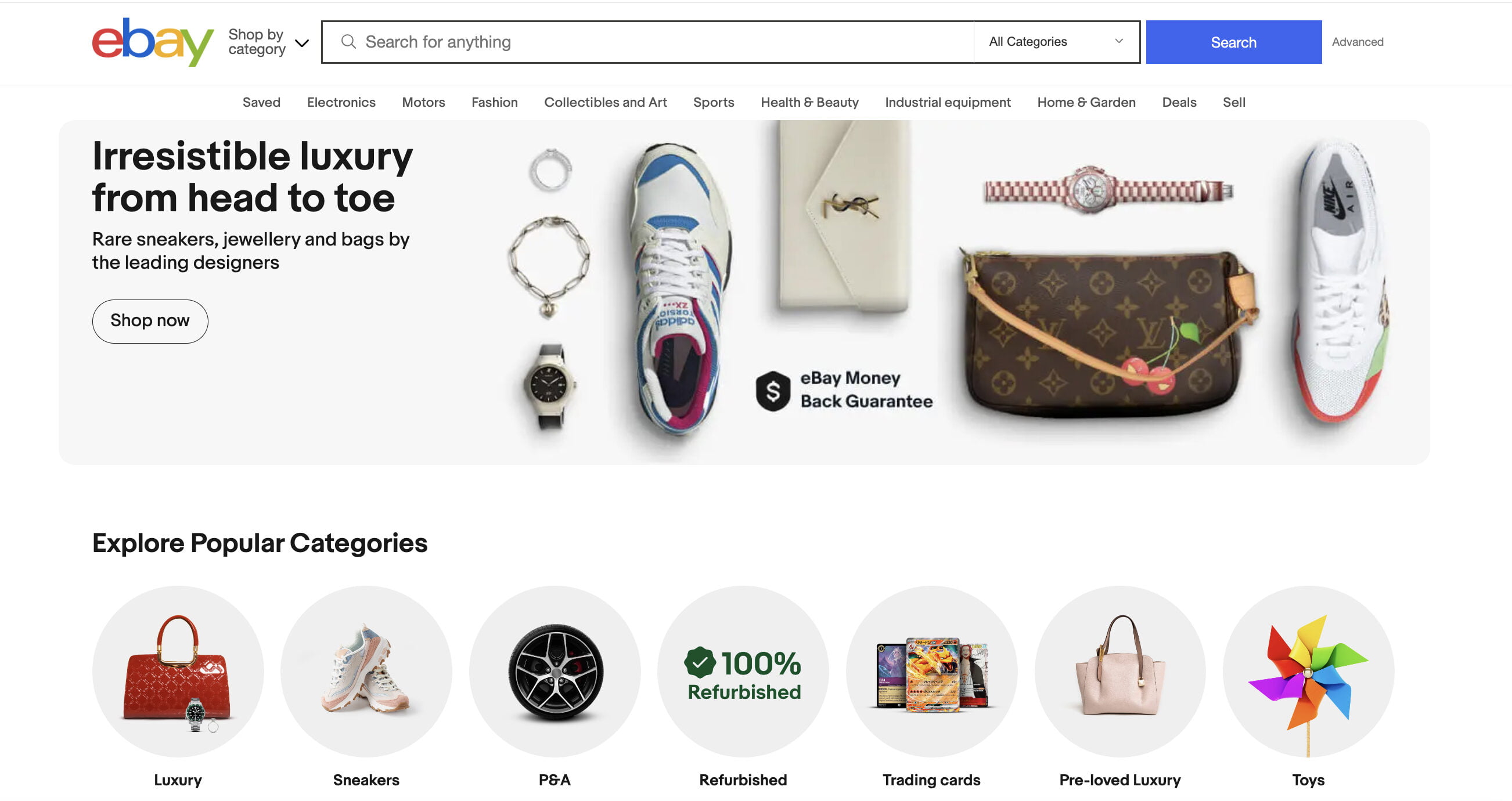
C2G (Consumer to Government)
The C2G model involves individuals selling products or services to government entities. Although less common in ecommerce, this model includes paying taxes online or submitting bids for government contracts.
Characteristics:
- Individuals interact directly with government agencies;
- Includes online services such as tax filings and fee payments;
- Often facilitated through government portals.
Consider TurboTax as an example. It enables individuals to file their taxes online directly with government tax authorities.

Ecommerce Website Types
Regardless of the type of ecommerce business model you choose, there is one thing they all have in common – you need a website to bring the business model to life. The type of website you choose will influence how you interact with customers, manage products, and scale your business. Below, we explore the primary types of ecommerce websites, their advantages and disadvantages, and who they are best suited for.
Single Brand Store
A single-brand store is an ecommerce website dedicated to selling products from one brand. This type of website focuses on creating a solid brand identity and a direct relationship with customers. It’s a perfect fit for businesses focusing on a specific product type and companies with loyal customers.
Pros:
- Helps build and reinforce a consistent brand image.
- Facilitates better customer service and personalized marketing.
- Full control over products’ presentation and sale.
Cons:
- Only products from one brand are available, which can limit customer choices.
- May require more investment in marketing to attract and retain customers.
For example, Apple Store exclusively offers products, providing a seamless and branded shopping experience.

Retail Store
A retail store ecommerce website sells products from multiple brands, providing customers with various choices. It’s one of the preferred types of ecommerce businesses for companies that already operate physical stores and want to expand online and companies that sell various products across different categories.
Pros:
- Attracts a broader audience by offering various brands and products.
- One-stop shopping experience for multiple needs.
Cons:
- Requires sophisticated systems to manage diverse inventory.
- May struggle to create a strong identity if selling too many different brands.
For example, Best Buy offers electronics and appliances from various manufacturers.
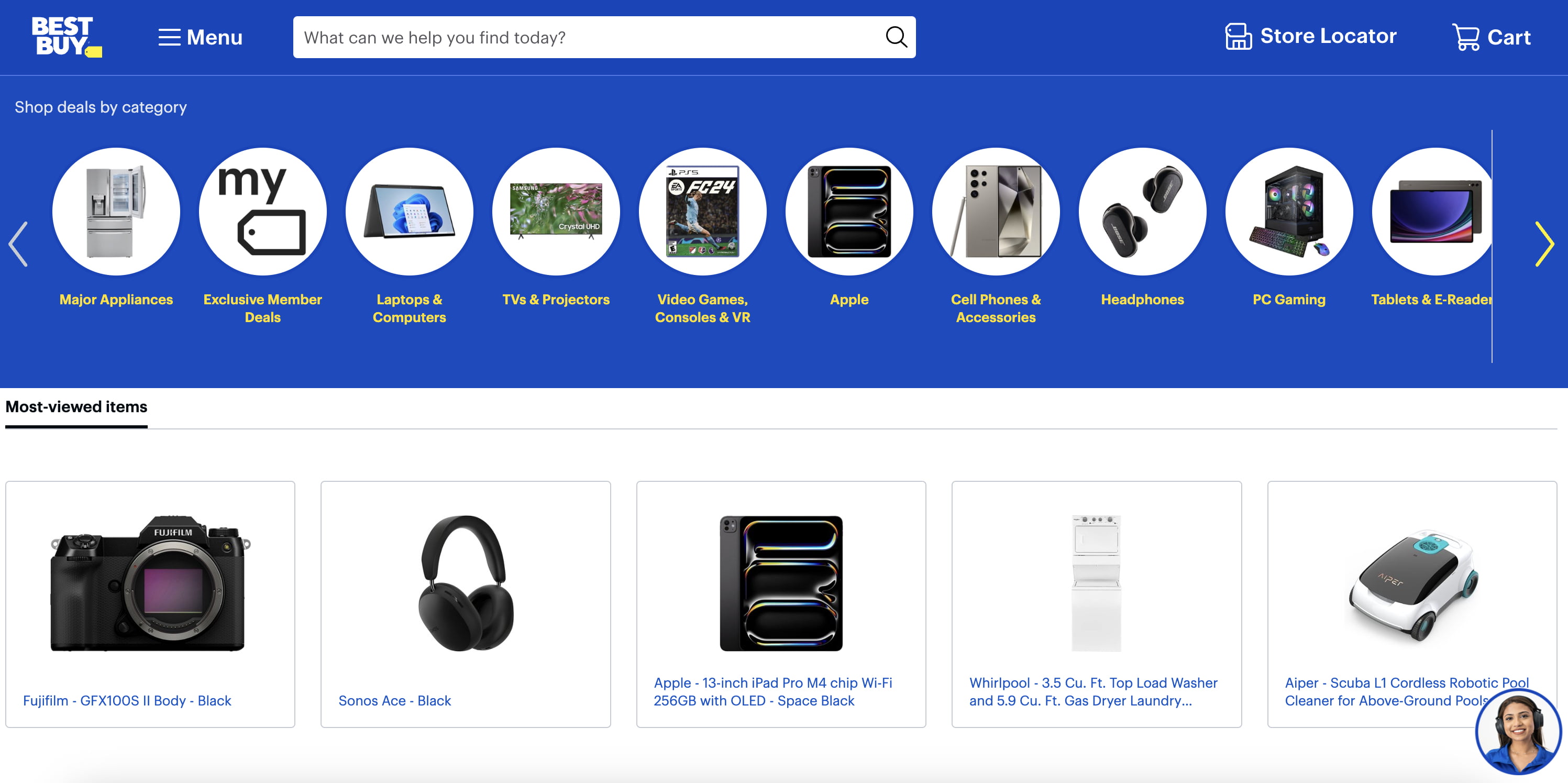
Marketplace
Marketplaces belong to the categories of ecommerce platforms where multiple sellers can list and sell their products. The marketplace operator facilitates the transactions but typically does not own the inventory. This is a perfect ecommerce website for individuals or businesses looking to create a platform for others to sell products and companies wanting to leverage a marketplace’s large customer base without managing their ecommerce site.
Pros:
- Attracts a wide range of buyers due to diverse offerings.
- Easy to add new sellers and expand the product range without holding inventory.
Cons:
- Sellers compete directly on the same platform, which can drive prices down.
- Requires robust systems to manage multiple sellers and ensure quality.
For example, Amazon Marketplace allows third-party sellers to list products alongside Amazon’s offerings.

Affiliate Website
An affiliate website promotes products from other businesses and earns a commission on sales generated through affiliate links. It focuses on content and marketing rather than direct sales. Content creators and small businesses may find running affiliate websites especially beneficial.
Pros:
- No need to manage inventory, shipping, or customer service.
- Can promote products from multiple companies and industries.
Cons:
- Dependent on the quality and availability of products from other businesses.
- Requires a strong ability to attract and maintain web traffic to be profitable.
For example, Wirecutter reviews and recommends products, earning commissions through affiliate links.

How to Choose You Best Type of Ecommerce Website
Selecting the right type of ecommerce website involves considering various factors related to your business model, target audience, and operational capabilities. Here are some tips to guide your decision:
- Business Model Alignment. Ensure that the website type matches your business model. For example, a single brand store is ideal for B2C models, while a marketplace is suitable for C2C models.
- Target Audience. Understand your customers and their shopping preferences. A single-brand store may appeal to loyal brand followers, while a marketplace might attract bargain hunters looking for variety.
- Product Range. Consider the number and variety of products you plan to offer. A retail store or marketplace could be more appropriate if you have a diverse product range from multiple brands.
- Resources and Capabilities. Evaluate your budget, technical expertise, and inventory management capabilities. Marketplaces require robust platforms, while affiliate websites need strong content and marketing strategies.
- Growth Potential. Consider your long-term business goals and scalability. A marketplace can scale quickly by adding more sellers, while a single-brand store focuses on deepening customer relationships.
Conclusion
Ecommerce is booming, and if your business isn’t yet on the web, you’d better consider making a quick decision to provide your audience with the convenience of buying your products or services online. Now that we have clearly defined different types of ecommerce websites and business models, you can decide on the best choice for your business and audience.
If you want professional help launching an online store that converts, IT Monks Agency offers ecommerce website development services of the highest quality. Contact us to discuss the details of your project, and we’ll provide you with the best solution for your business.
Contact
Don't like forms?
Shoot us an email at [email protected]

